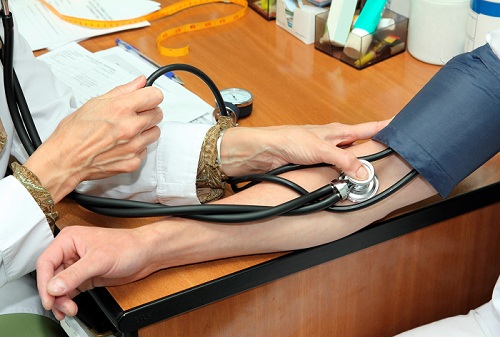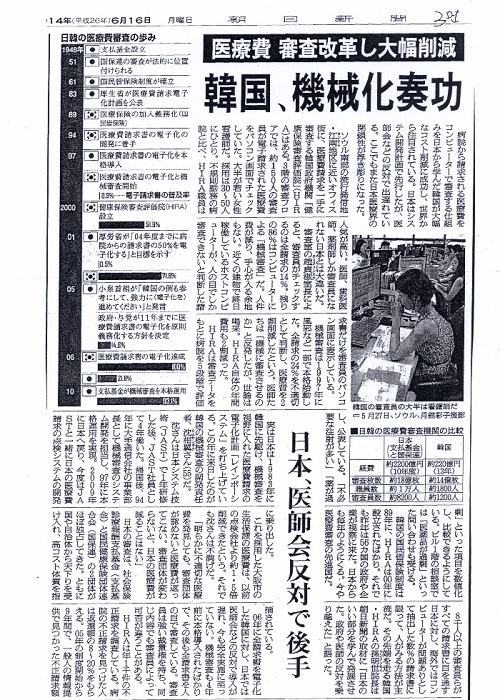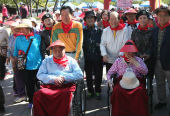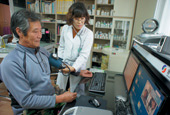The Korean national insurance system is being exposed to a growing amount of recognition from abroad, as it has successfully cut down on medical expenses with its automated computer system.
Recently, the Asahi Shimbun, a Japanese daily, published an article titled, "Korea succeeds in drastic cut in medical expenses with computerization." The newspaper reported on the role of the Health Insurance Review and Assessment Service (HIRA) in the nation's insurance system. The HIRA is a government body that evaluates the medical expenses reported to the government, not including the patient's charges. It determines whether the expenses were appropriate, and whether or not the price was reasonable for the citizens, among other duties.

The newspaper said that, "In Japan, only doctors, dentists and pharmacists can become an examiner of the medical expenses. Korea's HIRA is considered to be a popular job among young professionals," pointing out the inefficiencies in the existing system in its own country.
It continued to compare the two East Asian neighbors. "The Korean insurance system was launched in 1989 and the HIRA was established in 2000, while Japan adopted a computerized assessment system far earlier, in 1983," said the newspaper, adding that, "Now, Japan lags behind Korea in this field."

The daily also published an interview with Son Myeong-se, head of the HIRA, who said that, "We learned about the system first from Japan, and then further developed it on our own. We managed to overcome opposition by both the government and doctors."
In fact, the HIRA service enjoys the benefits of computerization. The system first came to Korea only in 1997. During the first several years, it was only partly implemented for less severe illnesses, like the common cold. These days, however, the number of bills that pass through a set of human hands is only 14 percent. The remaining 86 percent is processed automatically by computer, with servers that run 24 hours per day. The service passes on to humans only a handful of bills that it judges are necessary of an inspection.
The newspaper also compared the two countries' systems in terms of transparency and fairness. "Korea allows and encourages individual people to catch illegal bill requests and to compensate them for up to 8 to 20 percent," explained the Asahi Shimbun. It compared the system to that of Japan, which, "carries out bill investigations on only an average of 10 cases per year, with a maximum number of 100 per year, and which brings to light only 10 to 20 illegal cases."
By Lee Seung-ah
Korea.net Staff Writers
slee27@korea.kr
Recently, the Asahi Shimbun, a Japanese daily, published an article titled, "Korea succeeds in drastic cut in medical expenses with computerization." The newspaper reported on the role of the Health Insurance Review and Assessment Service (HIRA) in the nation's insurance system. The HIRA is a government body that evaluates the medical expenses reported to the government, not including the patient's charges. It determines whether the expenses were appropriate, and whether or not the price was reasonable for the citizens, among other duties.

The Korean national insurance system gains a growing amount of attention from abroad. (photo: iclicki)
The newspaper said that, "In Japan, only doctors, dentists and pharmacists can become an examiner of the medical expenses. Korea's HIRA is considered to be a popular job among young professionals," pointing out the inefficiencies in the existing system in its own country.
It continued to compare the two East Asian neighbors. "The Korean insurance system was launched in 1989 and the HIRA was established in 2000, while Japan adopted a computerized assessment system far earlier, in 1983," said the newspaper, adding that, "Now, Japan lags behind Korea in this field."

The June 16 edition of the Asahi Shimbun reports on Korea's automated medical assessment system.
The daily also published an interview with Son Myeong-se, head of the HIRA, who said that, "We learned about the system first from Japan, and then further developed it on our own. We managed to overcome opposition by both the government and doctors."
In fact, the HIRA service enjoys the benefits of computerization. The system first came to Korea only in 1997. During the first several years, it was only partly implemented for less severe illnesses, like the common cold. These days, however, the number of bills that pass through a set of human hands is only 14 percent. The remaining 86 percent is processed automatically by computer, with servers that run 24 hours per day. The service passes on to humans only a handful of bills that it judges are necessary of an inspection.
The newspaper also compared the two countries' systems in terms of transparency and fairness. "Korea allows and encourages individual people to catch illegal bill requests and to compensate them for up to 8 to 20 percent," explained the Asahi Shimbun. It compared the system to that of Japan, which, "carries out bill investigations on only an average of 10 cases per year, with a maximum number of 100 per year, and which brings to light only 10 to 20 illegal cases."
By Lee Seung-ah
Korea.net Staff Writers
slee27@korea.kr



